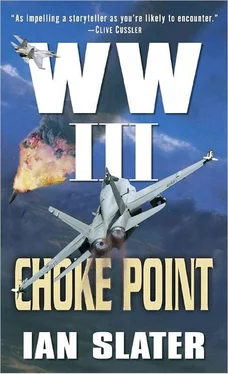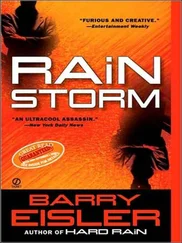“Yes.” Riser smiled, seizing upon the general’s good humor to get to the serious questions he wanted to ask, and for which he’d risked the wrath of his boss by foregoing the official Moon Festival festivities in Beijing. Wu Ling trailed behind them, so deferential that it was immediately obvious to Riser that she was not going to be the source of much helpful information.
In the courtyard of the inner garden, Riser suddenly had a powerful sense of déjà vu, so much so that despite his impatience to find out what Chang knew about Mandy’s death, he stopped walking, staring at the lanterns and the master’s study with its distinctive Ming furniture. He had seen this before, with his wife, but he and Elizabeth had never been to China, let alone Suzhou, together.
Chang was still talking. “I wanted to meet you here. One needs tranquility before—” He saw that Riser had fallen several paces behind him, the attaché’s face reminding the general of the British politician Tony Blair, creased with worry lines that momentarily gave him the appearance of a much older man, an effect highlighted by the bereaved cultural attaché’s uncharacteristically unkempt appearance.
Riser turned his gaze from the master’s study in the garden to the general. “Yes?”
“Perhaps you are not ready?” suggested Chang.
“For what?”
Obviously the American hadn’t heard him. “To go to the morgue.”
Wu Ling, Riser saw, had tears in her eyes, fighting hard to control her emotion.
“No,” Riser told Chang. “I’m not ready. But I have to, I suppose.”
“Quite so. I thought the garden might give you a chance to revive your spirits first. Perhaps I should have arranged it the other way around.”
“No, no, I’m sorry. I didn’t mean to be rude, but I’ve just — I feel as if I’ve been here before with my late wife.”
“You are correct.”
Riser stared at the general, completely nonplused.
“Some years ago,” the general explained, “this courtyard was copied in every detail and displayed in New York at the Metropolitan Museum.”
“When?” asked Riser, relieved by the possibility that his mind was not imagining things but merely remembering a real, happier time — his Sunday visits to the museum with Elizabeth and Mandy. “Going to church,” he used to call it, the highlight of their week, Mandy transfixed by Monet’s Haystacks.
“I think,” replied the general, “it was before your daughter was born.”
“Yes.” Charles forced himself to return to the present. “What have you found out?”
“She was murdered, Mr. Riser, but I do not think it was for money.”
Charles felt his bowels turning to ice. His doubts about Mandy’s death had been difficult enough to deal with, but confirmation of his suspicions that she had been randomly attacked — He had to sit down on the stone bench and take a deep breath.
“Perhaps you should not go to the Suzhou coroner.” The general meant going to the morgue.
“Yes,” said Charles. “I have to see her. Can we go now?”
“If you wish,” said Chang, surprised by the energy of Riser’s request coming so quickly after what had clearly been a body blow.
“I want to get it over with,” Riser told him, sensing the general’s surprise.
Outside the Garden of the Master of the Nets, the general resorted to small talk in an effort to amortize the American’s pain, explaining to Charles how the garden had been named after a government official so fed up with bureaucracy that he’d decided to abandon his world and become a simple fisherman, casting his nets. Charles appreciated Chang’s efforts, and he did understand how the official had felt; how, like so many, he had yearned to be free of it all, as he himself did now — free not only of the bureaucratic world, but of the world itself.
On their arrival at Suzhou’s morgue, Wu Ling remained in the car. The building was renovated but still bore all the elements of the brutal Soviet architecture of the 1950s. Chang and Riser passed through a small, cluttered, smoke-filled office. There were three computers, but no one at them, two of the female clerks staring at the “Big Nose,” the other preoccupied, doing her nails. The coroner, Mr. Wei, was out, one of them told General Chang, apparently not recognizing him out of uniform.
It was the grim, overpowering smell of antiseptic that first struck Riser. Further inside, however, the morgue looked and sounded disconcertingly gay, with Moon Festival paper lanterns strung all about and Chinese opera wailing from Suzhou’s Chinese Central Television channel. Copies of Renmin Ribao — The People’s Daily —the country’s propaganda organ, outdated editions of the Shanghai Star , and several tabloids he’d never seen before, featuring front-page pictures of nudes soaking up the sun on some “unnamed” southern beach, were strewn about. Either there wasn’t much to do in the Suzhou morgue or it was overstaffed. Had the Gong An Bu seen these ideologically impure publications? Either that or they hadn’t been here at all.
There was a short, sharp exchange in dialect between coroner Wei as he returned and the general, an assistant in a bloodstained lab coat quickly gathering up the tabloids and scurrying out to the cramped front office. As if by way of apology for the festive, rather lackadaisical air, or so Charles thought at first, Chang walked over to the TV, seemingly to turn it off, but he surprised Riser by turning the opera up even louder. The high, nasal whine of the dan —the female roles played by men — reached such a pitch that Riser was sure he was in for a splitting headache, even though he was more or less conditioned by now to the appalling noise pollution levels in which most of China carried on its business.
“I like opera,” Chang told him loudly, while scribbling something on a piece of notepaper and waving Riser over toward the far bank of aluminum freezer trays. “I particularly like this one, ’The People’s Justice.’ Do you know it?”
“No!” said Riser, so forcefully that it betrayed his irritation, though he’d no sooner said it than he realized that Chang was probably creating what in the embassy they called an ad hoc “special classified intelligence facility”—a rubber-mounted plastic bubble with anechoic coatings, from which no sound could be detected by either beam mikes aimed through glass from outside a building or from fixed mikes hidden in the room.
The experience of having to identify Elizabeth’s body still vivid in his memory, Charles steeled himself to be ready when Wei pulled out the cold, calico-sheathed aluminum slab.
There was a delicate lace of ice about her hair. Worried she’d be so cold, Charles gently brushed the frost back from her forehead. The opera was reaching hysterically high levels, and, already queasy from the overpowering antiseptic — a peculiarly sweetish, astringent odor which he knew he would never forget — he said nothing.
Chang, indicating the bruising on her head, spoke quietly in English, as if not wanting any of the coroner’s staff to hear. “Say nothing. She was tortured. Raped. Massive internal bruising.” With that, the general stood up, pushed the slab in partway, and reaching up, drew down a fifteen-by twenty-four-inch paper bag, taking out a blue Mao suit and a smaller jeweler’s packet, spilling out a digital Casio watch and a locket. “Her personal effects. One watch, one locket. You must sign here. Ah—” added Chang awkwardly, “—there is a fee. I am sorry. Twenty yuan.”
No doubt it was another foreigner rip-off, but Charles, rummaging beneath his shirt in his money belt, didn’t argue. He owed Chang a lot more for telling him the truth.
“I think you need a drink,” said Chang.
Читать дальше












